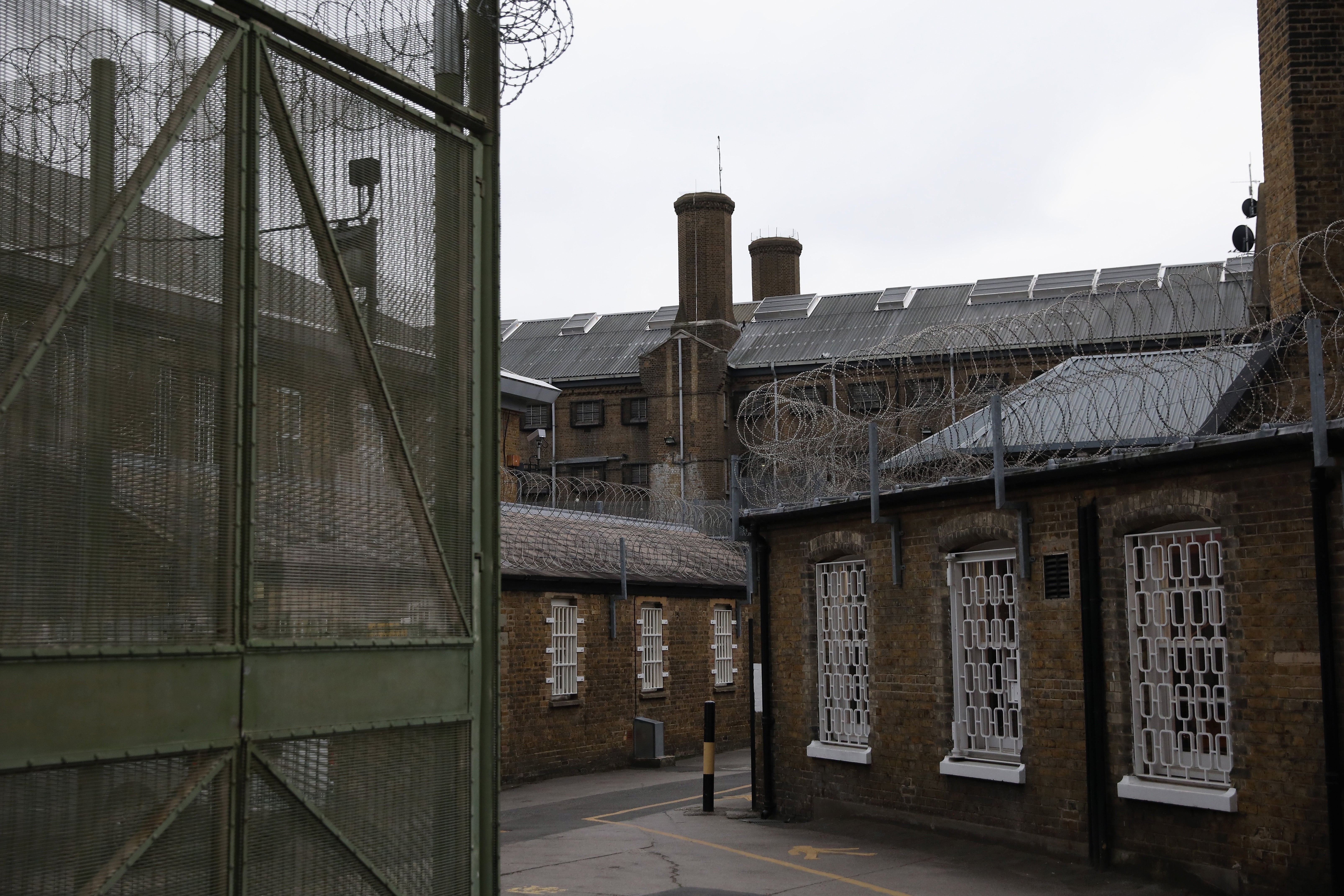HMP Brixton: Inspection finds catalogue of failings at one of UK’s most overcrowded jails
Inspectors warn of ‘appalling’ conditions and failures to take basic steps to reduce inmates’ potential risk to public
Your support helps us to tell the story
From reproductive rights to climate change to Big Tech, The Independent is on the ground when the story is developing. Whether it's investigating the financials of Elon Musk's pro-Trump PAC or producing our latest documentary, 'The A Word', which shines a light on the American women fighting for reproductive rights, we know how important it is to parse out the facts from the messaging.
At such a critical moment in US history, we need reporters on the ground. Your donation allows us to keep sending journalists to speak to both sides of the story.
The Independent is trusted by Americans across the entire political spectrum. And unlike many other quality news outlets, we choose not to lock Americans out of our reporting and analysis with paywalls. We believe quality journalism should be available to everyone, paid for by those who can afford it.
Your support makes all the difference.A damning inspection has highlighted a catalogue of failings at one of the UK’s most overcrowded jails - underscoring how the crisis behind bars “extends far beyond the prison walls and into our communities”.
With the government freeing thousands of prisoners early to ease capacity pressures, experts said the new findings from an unannounced inspection at HMP Brixton must serve as a wake-up call for ministers to urgently invest in a prison system “on the brink of collapse”.
Inspectors said two-thirds of Brixton’s 740 inmates – many of whom are sexual offenders, or suffering mental health or drug issues – were forced to double up in cramped and dirty cells built for one person. Some had to do this for more than 23 hours a day, making it the most overcrowded category C jail in the country.
But despite 140 prisoners being released from Brixton each month, inspectors warned the prison was failing to prepare them for their return into the community – meaning they were being freed with “potentially unmet need or unaddressed risk”.

Some prisoners were given just 45 minutes out of their cell each day for showers and fresh air. With 42 per cent of inmates saying it was easy to get hold of illicit drugs, 28 per cent tested positive for drugs in random testing – twice the Prison Service’s target level.
And despite Brixton’s status as a “resettlement” prison – which is supposed to prepare inmates for release – there remained no accredited programmes aimed at reducing reoffending, inspectors said.
One prisoner had waited 10 months before having contact with the officer overseeing their sentencing plan, while 31 had been freed in the month before the inspection without police and probation knowing what public protection arrangement was required.
Education, training and employment were all given the worst rating of “poor”, with up to a quarter of inmates estimated to lack access to any employment or activities. None were allowed out to work on day release, typically viewed as a key tool of rehabilitation.
HM chief inspector Charlie Taylor said: “There is no doubt that Brixton faces unique challenges as an inner-city category C jail, but its location also offers unique advantages in terms of the wealth of local employment opportunities, which should have provided excellent opportunities for prisoners.”

Despite inspectors meeting many dedicated staff at Brixton and finding much to commend during their visit in June, Mr Taylor warned that “fundamentally the prison was failing to deliver on its intended role as a training and resettlement prison”.
Just 20 per cent of prisoners surveyed told inspectors that the prison’s culture encouraged them to behave well, with 30 per cent feeling unsafe at Brixton - significantly higher than similar prisons.
Expressing concern at the lack of visible leadership in the prison from middle management upwards, inspectors said: “In the absence of a consistent management presence and reinforcement of standards on the units, we found a range of concerns, including some appalling cell conditions.
“While prison leaders were hindered by the failure of national leaders to resolve the problem of severe overcrowding, they should have done more to improve the prison environment.”
Campbell Rob, chief executive of the justice charity Nacro, warned the report “underscores how the impact of a prison system in crisis extends far beyond the prison walls and into our communities”.

Pointing to the large number of inmates leaving Brixton every month, Mr Robb said: “It is unacceptable that people are leaving without having been able to access accredited behaviour programmes, and education, training or employment opportunities during their time inside.
“These are crucial both to people’s successful reintegration into society, and to reduce reoffending. When prisons fail to provide people with the support they need to tackle their offending behaviour it creates an increased and unnecessary risk to the safety of our communities.
“This latest report ought to serve as a further wakeup call to the government – if one is needed – that if we want safer communities, they must take urgent action to invest in a prison system currently on the brink of collapse.”
Andrea Coomber KC, chief executive of the Howard League for Penal Reform, said: “This is the latest in a long line of inspection reports on overcrowded prisons up and down the country that are failing to turn lives around. It underlines the need for a major overhaul of a system that has been asked to do too much, with too little, for too long.”
A Ministry of Justice spokesperson said: “The new government inherited a justice system in crisis and has been forced to take action across the prison estate so we can continue to lock up dangerous offenders, protect the public and make prisons safer for hard-working staff.
“HMP Brixton has already made significant strides in addressing the concerns raised in this report, including bolstered supervision for offenders on release, refurbishment works on the wings and using its X-Ray scanner and intelligence-led cell searches to clamp down on illicit items entering the prison.”

Join our commenting forum
Join thought-provoking conversations, follow other Independent readers and see their replies
Comments